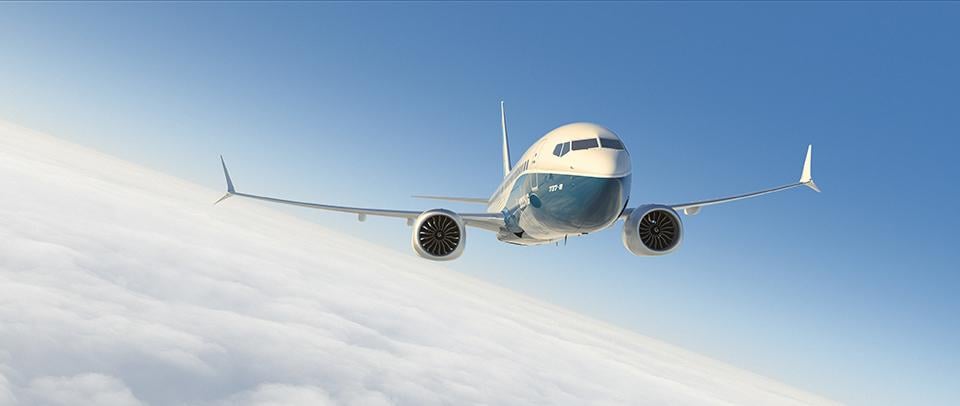
Credit: Boeing
When the next Boeing 737 MAX rolls off the assembly line sometime later this year, it will roll into a very different world than when production was paused in mid-January.
Questions about whether customers will want MAXs are being replaced by whether they need them, as global demand for passenger travel has plummeted and is not expected to come back quickly. Once airlines and lessors re-assess their needs, Boeing will have some work to do, aligning suddenly reduced demand for new aircraft with monthly production rates.
In the MAX’s case, the model’s troubles gave Boeing a head start it didn’t know it needed. Had the MAX not been grounded in March 2019 following two fatal accidents, the company’s plan to boost production to 57 aircraft/month later in the year probably would have stayed in place. Instead, the grounding and related production slowdown—Boeing cut its MAX rate to 42/month from 52/month in April 2019—reduced the number of MAXs heading out to airlines. The January shutdown halted it.
For most affected airlines, not having their share of more than 800 MAXs—the 387 grounded and another 420 or so built by Boeing since the grounding but not delivered—was a growth-constraining burden. Now, it’s a blessing.
With passenger traffic unlikely to reach 2019’s levels (let alone 2018, the last calendar year not affected by the constraining MAX groundings) for several years, airlines and lessors must re-work fleet plans on the fly. Less of everything is a good bet.
Analysts at Bernstein see Boeing delivering about 2,700 MAXs through 2024, including 86 this year. The projected ramp-up would see Boeing get back to its previous high-water production mark of 52/month in 2024 (and then jump to 57/year in 2025).
Canaccord Genuity is less optimistic. The firm sees about 2,100 MAXs going to airlines between now and 2025, including just 36 this year. In Canaccord’s scenario, Boeing’s peak MAX monthly production rate during the next five years is about 50/month.
Had Boeing reached 57/month last year and kept that rate until 2025, it would have produced 3,420 MAXs during the current five-year run. Under either the Bernstein or Canaccord scenarios, Boeing would have had to shed hundreds of MAXs from its near-term skyline, via cancellations or deferrals, to match supply with demand.
Customers are already on the job. Through the end of March, Boeing’s year-to-date 737 backlog had fallen by 314 aircraft, or 309 more than the total number delivered (while MAX deliveries are on hold, Boeing is still handing over P-8s and delivered its last two 737NGs, to China Eastern, in January). On April 17, mega-lessor GECAS cut its MAX commitment by 69 aircraft.
There are plenty more orderbook adjustments to come.
Boeing said it would call workers back to the MAX production line starting April 20. It plans a long, slow ramp-up that may not see the first aircraft roll out for a few months. It has plenty of time to spare.
Back in January, when Boeing announced plans to pause the line, management assumed the largest impediment to ramping up MAX production quickly would be the supply chain’s ability to keep pace. Whether customers needed the aircraft was a non-issue. Now, it’s the main one.
GE Cancels Large Boeing Order
Boeing suffered another setback over its 737 Max on Friday, as
General Electric Co.'s aircraft-leasing arm canceled an order for 69 of the
planes, which have been grounded for more than a year after two crashes. GE
Capital Aviation Services referred to less need for planes by airline
customers. Nearly two-thirds of the world's passenger planes are grounded
because of a sharp drop in travel during the coronavirus pandemic, and Boeing
removed about 300 Max jets from its order book last month.
Boeing also said it will resume production Monday at facilities
near Philadelphia that produce military helicopters after a two-week shutdown
due to the coronavirus. The announcement came a day after Boeing said it will
resume production at commercial jet-assembly plants in the Seattle area, which
shut down after some workers tested positive for the virus.



Ingen kommentarer:
Legg inn en kommentar
Merk: Bare medlemmer av denne bloggen kan legge inn en kommentar.